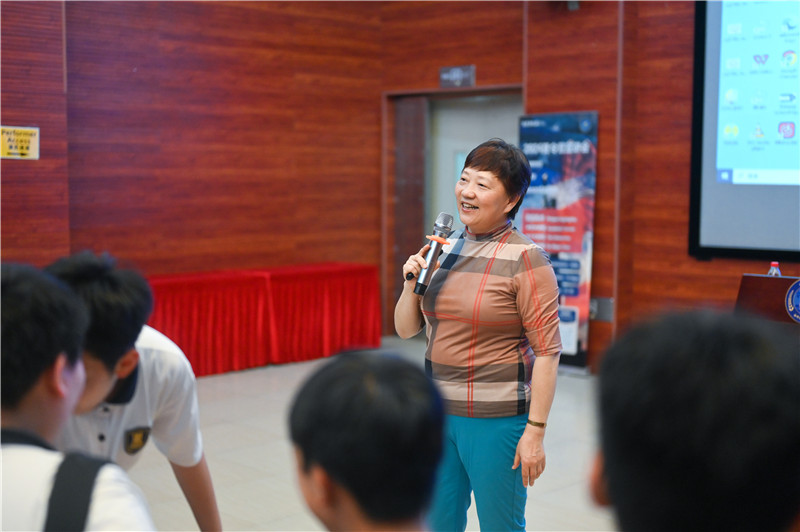
School News丨一周校园回顾:制茶之乐与信息时代的双刃剑
★ 茶园研学
上周,福州西湖国际学校高中&学院部学子前往春伦茶园,展开就茶叶为主题的考察学习。众所周知,福建乃产茶大省,诸如武夷岩茶、安溪铁观音、福州茉莉花茶、坦洋工夫红茶等茶叶种类驰名中外;这段日子正值春茶采摘末期,身处福建,体验采茶也别有乐趣。
Last week, the students of Fuzhou Lakeside International School High School & Academy went to Chunlun Tea Plantation for a tea-themed study tour. As we all know, Fujian is a major tea-producing province, and tea varieties such as Wuyi Rock Tea, Anxi Tieguanyin, Fuzhou Jasmine Tea, and Tanyanggongfu Black Tea are famous all over the world; and at the end of the spring tea picking season, it was a lot of fun to experience the tea picking in Fujian.
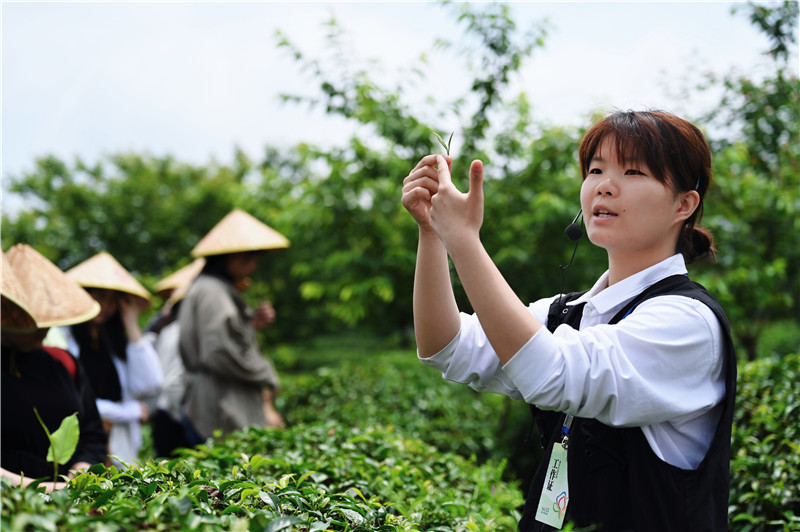
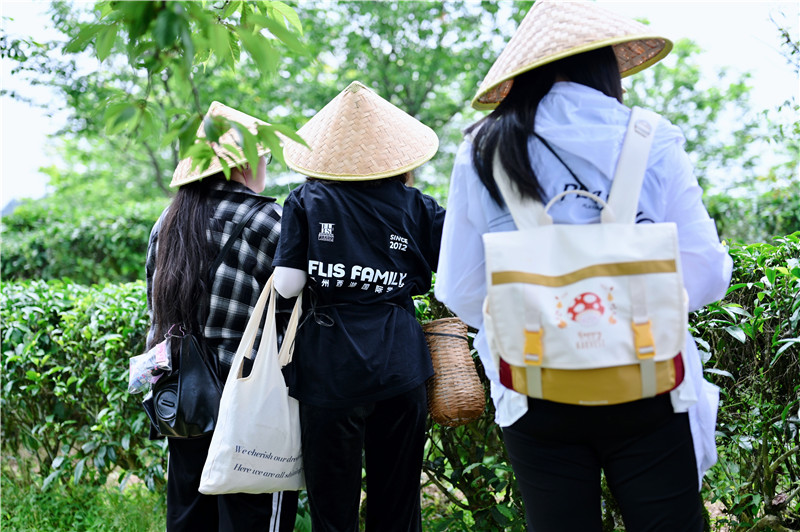
FLIS学子抵达春伦茶园后,首先在茶园工作人员的介绍下了解了茶叶的历史,接着,他们又掌握了采摘的诀窍,正式将之付诸实践。虽目前除名茶仍采用手工操作外,大宗绿茶的一些制作过程已实现机械化,但此次机会难得,一番辛勤劳动后,学子们在专家的手把手指导下,亲历揉捻、干燥等步骤,将自己采摘的茶叶制成“蒸青绿茶”。
After arriving at Chunlun Tea Plantation, FLIS students were first introduced to the history of tea by the staff of the tea plantation, and then they mastered the skill of tea-picking and put it into practice. Although at present, except for the famous tea, which is still operated manually, some of the production processes of the green tea have been mechanized, but this is a rare opportunity, after some hard work, the students, under the expert's guidance, experienced the steps of rolling, stir drying, etc., and made the tea leaves they picked into “steam fixed green tea”.
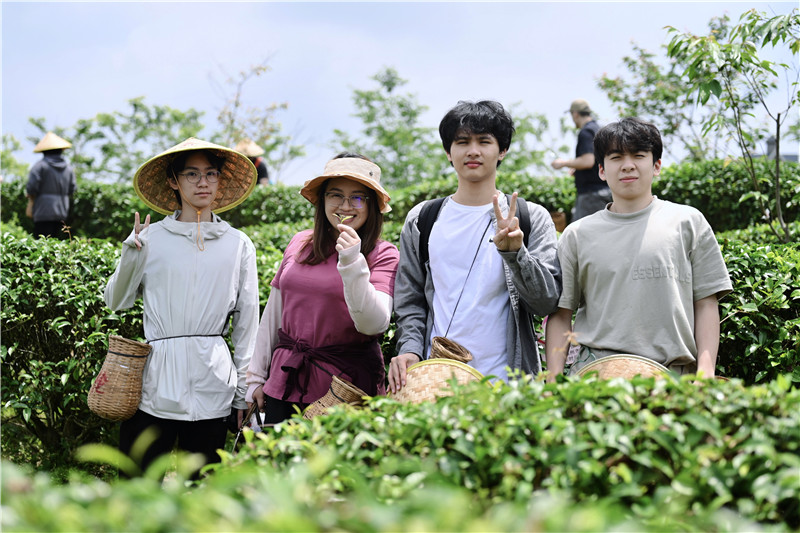
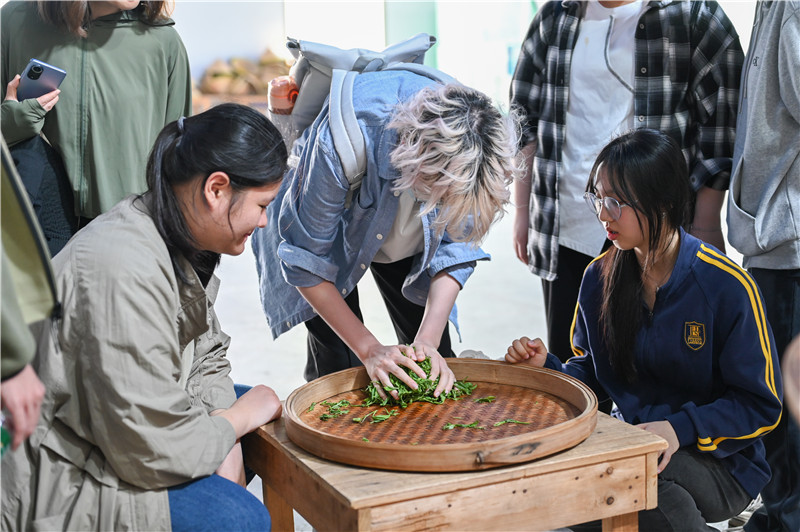
学习品茗的礼仪与泡茶的手法也是此次茶园行的重点之一。不知亲历绿茶从嫩绿新叶到条索状茶叶的全过程以后,再品味自己亲手泡开的“清汤绿叶”,是否别有一番滋味?之后,学子还深耕茶叶主题,围绕这一主题设计产品,制定长期商业计划。如此一来,学子的学术英语写作能力、宣讲能力与商业计划撰写能力均得到了锻炼。
Learning the etiquette of tea tasting and brewing techniques was also one of the highlights of the Tea Plantation tour. After experiencing the whole process of green tea from the young green leaves to the striped tea leaves, will students feel richer in flavor when they taste the tea? Afterward, the students also deepened the theme of tea, designing products around this theme and developing long-term business plans. In this way, the students' academic English writing skills, presentation skills and business plan writing skills have been practiced.
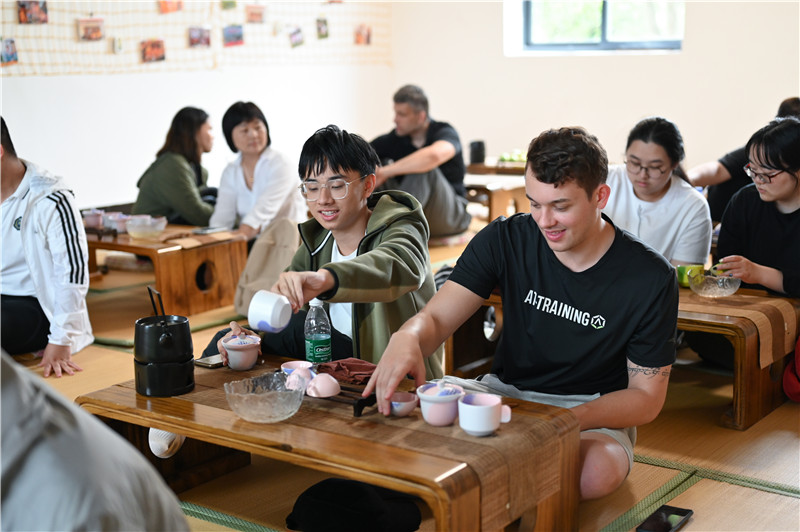
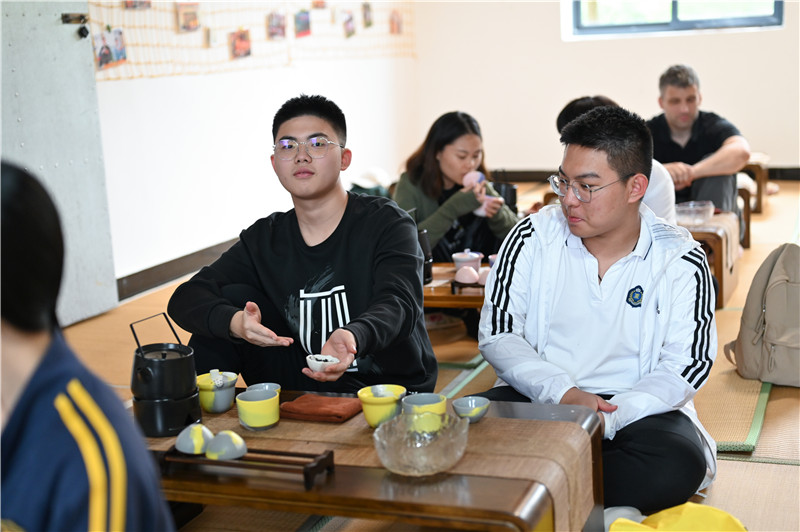
★ 数字公民与数字素养
随着网络信息时代快速发展、传播时代到来,公民的生活及思维方式都受到了信息技术快速更新变革的形塑:从台式机到平板、手机,从纸笔记录到数字化办公,从现金支付到扫码付款……互联网与种种信息技术在为人类社交、劳动、商业贸易带来巨大便利的同时,也埋下了重重危机。本期FLIS TALK, 我们请到了福州大学经济与管理学院的骆念蓓博士为大家讲解何谓数字公民及数字素养。
With the development of the network information age and the arrival of the communication age, the life and way of thinking of citizens have been affected by the rapid updating and change of information technology: from desktops to cell phones, from paper and pencil records to digital office, from cash payment to mobile payment... The Internet and all kinds of information technology have brought great convenience to human socialization, labor, and commercial trade, but at the same time, they have also sowed a lot of crises. In this issue of FLIS TALK, we invited Dr. Luo Nianbei from the School of Economics and Management of Fuzhou University to explain what digital citizenship and digital literacy are.
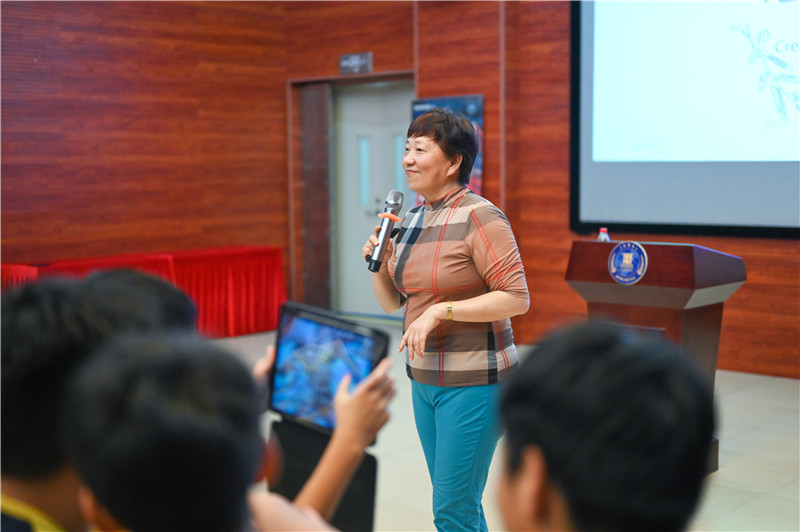
根据骆老师为学子介绍的定义,数字公民指的是那些能够负责任、有效地使用信息和通信技术参与社会、政治、经济和文化活动的人。由此可见,这一身份不仅强调其对技术的使用,还强调要了解技术对自己及他人的影响。浏览网络内容时,你是全盘接受还是注意信息甄别、核查信息来源及其可信度?你是否有足够的网络安全意识,知晓如何保护个人信息安全、避免网络诈骗及隐私窥探?你又能否有效使用电子邮件、社交媒体等数字工作进行沟通协作?我们该如何理解、遵守数字环境中的法律、版权、道德和行为准则,尊重他人的权利和隐私?听完骆老师的演讲,希望大家都对自己作为数字公民的责任与权利有所思考;正因数字公民意识的提升对于构建健康、包容和公正的数字社会至关重要,日后上网冲浪时,也希望大家能够学会正确应对、处理不良内容,有效查找、识别、使用数字世界的各种信息,保护自己的隐私。
According to the definition that Dr. Luo introduced to the students, digital citizenship refers to those who use the internet regularly and effectively to participate in social, political, economic and cultural activities. It can be seen that this identity not only emphasizes their use of technology, but also emphasizes the need to understand the impact of technology on oneself and others. When browsing online content, do you accept it entirely or do you pay attention to checking the source of information and its credibility? Do you have enough cybersecurity awareness to know how to protect the security of your personal information? Are you able to communicate and collaborate effectively using digital work such as email and social media? How do we understand and comply with laws, copyrights, ethics and codes of conduct in the digital environment, and respect the rights and privacy of others? After listening to Dr. Luo's speech, we hope students have thought about their responsibilities and rights as a digital citizen. As the enhancement of digital citizenship is crucial to building a healthy, inclusive and just digital society, we also hope students will learn to correctly respond to and deal with objectionable content when surfing the Internet in the future, and effectively find, identify and use all kinds of information in the digital world, as well as protect their own privacy.
